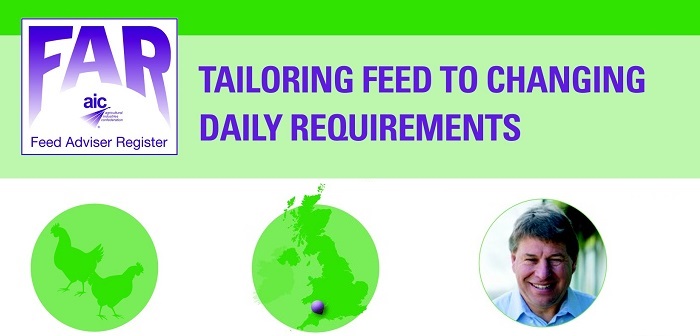The early results of an afternoon feeding experiment on a Devon poultry farm show an increase in productivity and welfare benefits for the flock concerned.
The experiment, carried out by feed adviser, Colin Gravatt, is the focus of one of seven feed case studies, newly published by the Feed Adviser Register (FAR).
Asked to give an example of how his feed advice had made a measurable difference to a commercial business, Mr Gravatt (pictured above) recounted an experiment which he’s currently working on with farmer Mark Sanders at East Combe Farm. The experiment involves providing different feeds in the morning and afternoon for laying birds.
“The afternoon feed, with a reduced protein and increased calcium content, is focused on the shell development phase of daily egg production,” reported Mr Gravatt. “Mark installed an extra feed bin, and augers to one his houses, and he and I have been monitoring the flock’s development.
“Despite the flock being in for less than 20 weeks, with another 40 weeks to go, Mark recorded his best egg production. He is also seeing improved egg shell colour, the birds are calmer, the muck drier, and the flock has maintained better than usual feather cover.
“The enduring test will be how shell quality holds up over the birds’ life with daily nutrition split to focus on the changing requirements through the day.”
FAR is a register for feed advisers and is intended for people that provide advice on feeding livestock to farmers. It was set up in 2013 by AIC and the feed sector in response to Government, industry and customer demands, predominately in relation to requests for Greenhouse Gas emission (GHG) reductions within the livestock sector. Three years on, the organisation has begun to assemble a library of case studies to display its “measurable results”.
The seven studies just published cover poultry, dairy and pig enterprises.


